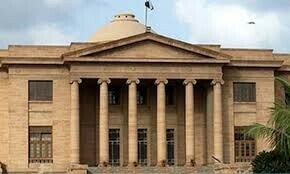HYDERABAD: The report on Gorano saline water reservoir prepared by a Sindh High Court-mandated inquiry committee was just eyewash as it failed to examine its environmental impact assessment (EIA) and took pains to justify the hazardous project, concluding that it could not be rolled back, according to objections filed by the petitioners.
The petitioners’ counsel Ayatullah Khowaja who filed the objections on Monday challenged the report on the ground that it failed to deliberate on its mandate and brought unnecessary material to justify illegalities committed by the Sindh Engro Coal Mining Company (SECMC) and other respondents.
Justices Salahuddin Panhwar and Fahim Siddiqui of the Hyderabad circuit of SHC heard the objections and adjourned the matter to Aug 21 with directives to respondents to attend the hearing of the case.
The counsel said the report’s failure to examine the project’s EIA report vitiated the entire exercise and reduced it to an attempt to buy time for the mining firm to complete the project.
He asked how the Sindh Environmental Protection Agency (Sepa) approved the project without prior endorsement of the Sindh Wildlife Department (SWD) when 28 kilometres out of 37km pipeline fell within protected area and whether Sepa issued any confirmation of completion certificate to the mining firm and how it commenced work on the pipeline when SWD issued its approval on Sept 6, 2016.
He said the committee completely failed to deliberate on the first part of its terms of reference (ToR). Complete ignorance of such important aspect reflected inability or unwillingness of the committee to discharge its responsibility, he said.
The committee completely failed to examine addendum of the EIA which was on water quality and submitted after public hearing on the directives of Sepa’s director general.
It said the committee, instead of deliberating on authenticity of data provided in the addendum, prepared a new report to justify the project which was beyond its scope.
The report prepared by one of the members, Dr Mohammad Ahsan Siddiqui, was an eyewash and test results annexed with the report were silent on source of samples ie three aquifers.
It said that laboratory where the tests were conducted was owned by Dr Siddiqui which lacked basic knowledge of sample collection and test reporting. The tests should have been conducted by the Pakistan Council of Research on Water Resources. Dr Siddiqui referred irrelevant research work to defend high volume of fluoride in water and justify fish breeding in the storage dam, he said.
The counsel said that Dr Siddiqui’s recommendation for using the dam for fish farming on the basis of irrelevant research work or incorrectly referred research work was eyewash.
The committee failed to discharge its responsibility with regard to the second part of the first ToR as it solely relied upon research work by others which, too, was in violation of ToR. Apparently, the committee failed to understand the description of the project, he said.
He said the committee failed to examine whether SWD had powers to issue NoC for the project and whether SWD or the mining firm carried out wildlife impact assessment of the project or whether a memorandum of understanding (MoU) was signed between SWD and Sindh Coal Authority (SCA) as required under the NoC of SWD.
SECMC started constructing the project without obtaining NoC from SWD and received the NoC only after the pipeline had already been laid, he said.
But, he said, the inquiry report was silent on SWD’s inaction towards SECMC and its violation of Wildlife Protection Act. Even the very NoC was illegal as it was purportedly issued under amendment-7 in section 14 of Sindh Wildlife Protection Ordinance 1972 which permitted laying underground pipeline with government’s permission. The NoC was for laying 50 cusec effluent disposal line and not for constructing disposal dams in a wildlife sanctuary, he said.
About the third ToR regarding distance between the pond and Gorano village, the counsel observed that the committee relied on a report prepared by Tharparkar deputy commissioner who provided incorrect and misleading information about the village population which could only be verified from census.
He said the committee provided details prepared by the DC without counter verification in a mala fide manner while completely ignoring the court’s directives in this regard.
It showed its inability to scrutinise reports by saying that “challenging these reports will require a lot of time, resources and third party assessment, which is not possible in given time and resources”. The committee should have informed the court about its inability instead of wasting time of court and petitioners, he said.
The counsel said the committee had at the very outset predetermined conclusion that the project could not be rolled back at this stage, observing “the committee finds it pertinent to comment that at this stage when 37km long water-carrying pipeline worth billions of rupees has already been laid it is rather futile to even consider any other option”.
The committee did not even find it fit to meet the petitioners and left them at the mercy of DC who filed false reports that the petitioners had refused to appear before the committee, said the counsel.
Published in Dawn, August 8th, 2017















































Dear visitor, the comments section is undergoing an overhaul and will return soon.